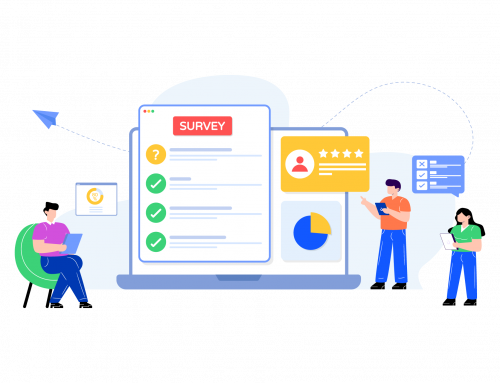Using social media platforms to recruit online survey participants is an effective way for companies to gather data from a diverse and representative sample. In this article, we will discuss the benefits of using social media for online survey recruitment, as well as some of the challenges and best practices for doing so.
The main benefits of using social media for online survey recruitment
One of the main benefits of using social media for online survey recruitment is that it allows researchers to reach a large and varied audience quickly and efficiently.
With billions of users on platforms such as Facebook, Twitter, and LinkedIn, researchers have the potential to reach a diverse group of people from all walks of life. This can be especially useful for companies who are looking to gather data from specific demographics or geographic areas, as social media platforms often have tools that allow users to target their ads to very specific groups of people.
Another benefit of using social media for online survey recruitment is that it can be less expensive and time-consuming than other forms of recruitment, such as sending out mailers or making phone calls. Researchers can use social media to promote their surveys and reach potential participants with just a few clicks, saving them valuable time and resources.
Some key challenges and how we overcome them
However, there are also some challenges to using social media for online survey recruitment.
One of the main challenges is that social media platforms can be noisy and cluttered, which can make it difficult for companies to get their message across to potential participants. Additionally, social media users are often bombarded with ads and notifications, which can lead to survey fatigue and decreased response rates.
To overcome the challenges of using social media for online survey recruitment, our teams use clear and concise language in their survey advertisements to get the message across effectively. For example, rather than using jargon or technical language, we use simple and straightforward language that is easy for a layperson to understand. This helps to ensure that potential participants can quickly and easily understand the purpose of the survey and decide whether or not they want to participate.
Another way to overcome the challenges of using social media for online survey recruitment is to target advertisements to specific groups of people. For example, if a researcher is looking to gather data from a specific demographic, they can use the targeting tools provided by social media platforms to reach out to people within that demographic. This can help to increase the response rate and ensure that the data gathered is representative of the group being studied.
Incentives can also be a useful tool for overcoming the challenges of using social media for online survey recruitment. By offering incentives such as cash prizes or gift cards, researchers can encourage more people to participate in their surveys. However, it is important for researchers to carefully consider the ethical implications of offering incentives and to ensure that they are not using them in a way that could unduly influence the responses of participants. In this blog, we elaborate on some of these risks linked to incentives and explain why we have chosen to make respondents give to associations rather than to gain money themselves.
While there are challenges to using social media for online survey recruitment, these can be overcome with careful planning and the use of best practices: using clear and concise language, targeting advertisements to specific groups, and offering incentives are the three effective ways to overcome these. By using these strategies, researchers can increase their chances of gathering high-quality data from a diverse and representative sample.




